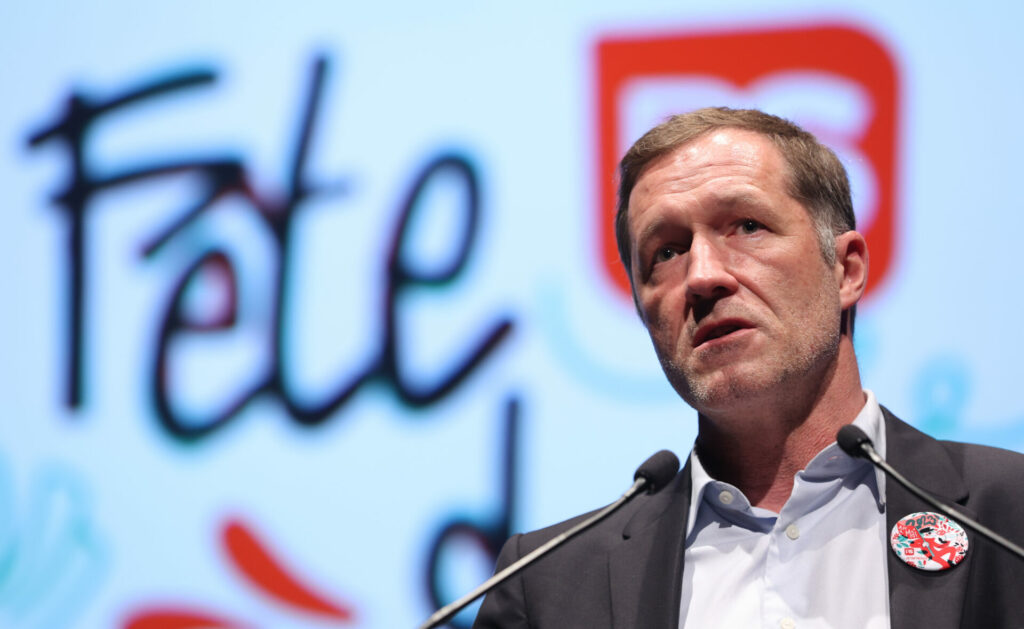The leader of Belgium's francophone Socialist Party (PS) and candidate for Belgium's next Prime Minister Paul Magnette is the country's highest-paid politician, with a salary of up to eight times greater than that of the average citizen.
Figures recently obtained by La Dernière Heure (DH) show that Magnette – who also heads the largest of the three French-speaking parties in Belgium's Vivaldi coalition government – earned between €260,710 and €410,542 in 2021 (the latest year for which data is available). The average salary in Belgium in 2021 was €48,448.
DH's report follows a similar study conducted last year by l'Avenir, which found that Magnette also topped the list of best-paid party leaders in 2020, when his salary ranged between €251,230 and €405,059.
Contacted by DH, a spokesperson for Magnette denied that there was any tension between Magnette's high salary and his repeated self-presentation as a staunch defender of the poor and vehement critic of the rich. The spokesperson added that Magnette's salary had "recently" been reduced by up to 8%. The politician is also the mayor of Charleroi.
The high price of politics
The DH report further noted that Magnette is not the only Belgian party leader to be exceedingly well-remunerated.
Bart De Wever, the head of right-wing Flemish nationalist party N-VA, was reported to be the second highest-earning party chief, receiving between €235,941.80 and €346,647. This, too, represented a sizeable increase relative to 2020, when the 52-year-old earned between €227,421 and €333,707. De Wever is also the mayor of Antwerp.
President of centrist party Les Engagés, Maxime Prévot, earned the third-highest amount, receiving between €231,259.36 and €336,695 – also up from 2020, when he earned between €182,294 and €273,397. Prévot is also the mayor of Namur.
Conversely, leader of French-speaking centrist party DéFI, François De Smet, received the lowest salary among party leaders. At €125,819.36, his income was roughly three times less than Magnette's, but still two and a half times greater than that of the average Belgian.
It is worth noting, that the top three best paid leaders are all mayors of major Belgian cities, and receive an additional salary alongside leading their respective political parties.
And the poor suffer as they must?
Reports of the high salaries of Belgian party leaders are likely to strike a jarring note among Belgian citizens, many of whom are struggling to cope with a severe cost of living crisis driven largely by high food and energy prices.
According to a study conducted earlier this year by Testaankoop, a Belgian consumer protection and analysis firm, 27% of Belgians are unable to save any money at all at the end of each month, while one in eight have recently turned to friends and family members in order to make ends meet.
Related News
- A troubling uptick: Inflation increases in eurozone for first time in six months
- New study paints stark picture of Belgium's growing economic despair
The study also found that 57% view their financial situation as "significantly worse" than 2021. Moreover, roughly a third of Belgians claim that they are simply unable to absorb any further price increases, while 40% are now dipping into their savings to pay the bills.
Worryingly, Belgians' financial difficulties appear to show no signs of subsiding. A report published yesterday by Eurostat, the EU's official statistics office, found that inflation remains stubbornly high throughout much of the eurozone – a fact which is likely to lead to a further interest rate hike by the European Central Bank at its next meeting on Thursday.

